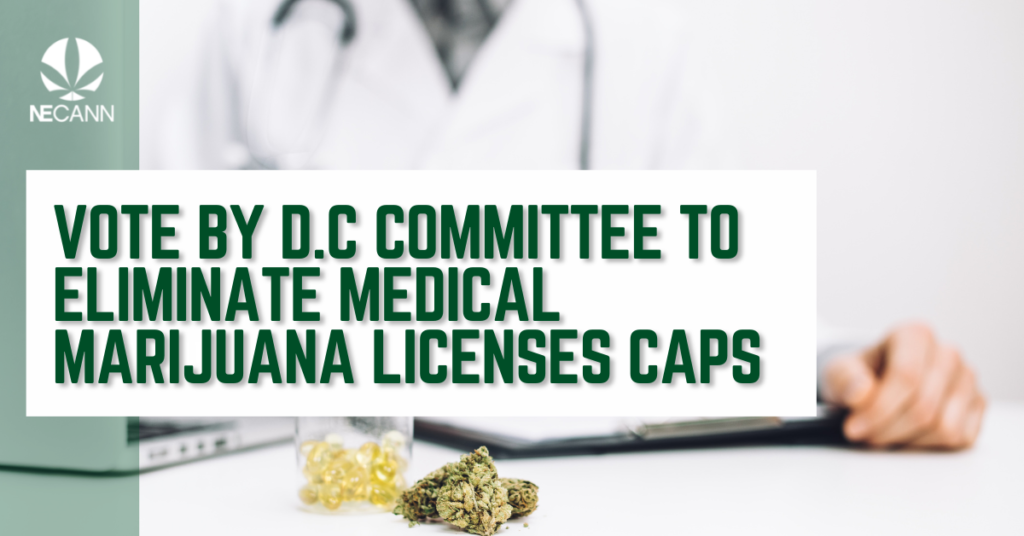Legislators in Washington, D.C., approved a bill that would fundamentally alter the District’s medical marijuana program in a number of ways, including by eliminating licensing caps for medical marijuana businesses, fostering social equity in the sector, and establishing new regulated business categories like cannabis cooking classes and on-site consumption facilities according to a report by Marijuana Moment.
The bill would also make a current temporary statute allowing adults to self-certify as cannabis patients permanently codified.
The measure’s original version would have increased the number of dispensaries by a specific number and eliminated other licensing restrictions; however, the committee’s revision eliminates all caps and leaves it up to the Alcohol Beverage Regulation Administration (ABRA) to determine how many dispensaries should be allowed. A study would need to be submitted by regulators to support the approval of more company licenses.
The Medical Cannabis Amendment Act, which the Judiciary Committee approved, has the following primary provisions:
Caps on marijuana business licenses would be removed.
An analysis that “demonstrates the need for additional licenses due to predicted or actual increasing demand surpassing the capacity of existing licensees” must be submitted before ABRA can approve new licensees for certain categories.
The licensing procedure would give candidates who are members of social equity and already operate medicinal cannabis enterprises priority.
It would permanently codify the emergency law permitting adults 21 and older to self-certify as medical cannabis patients.
For enterprises who sell marijuana under a “gifting” statute without being properly registered, the mayor would have the authority to take enforcement measures, such as levying penalties and revoking licenses.
New categories of authorized marijuana business activities would be made possible by the proposed legislation. For instance, license holders would be able to offer on-site consumption, delivery services, and cannabis culinary lessons.
Regulators were not permitted to look into a person’s “criminal conviction that has been sealed, expunged, vacated, or pardoned” in establishing their eligibility for social equity applicants.
The legal definition of “marijuana” would be altered to “cannabis” in all instances.




